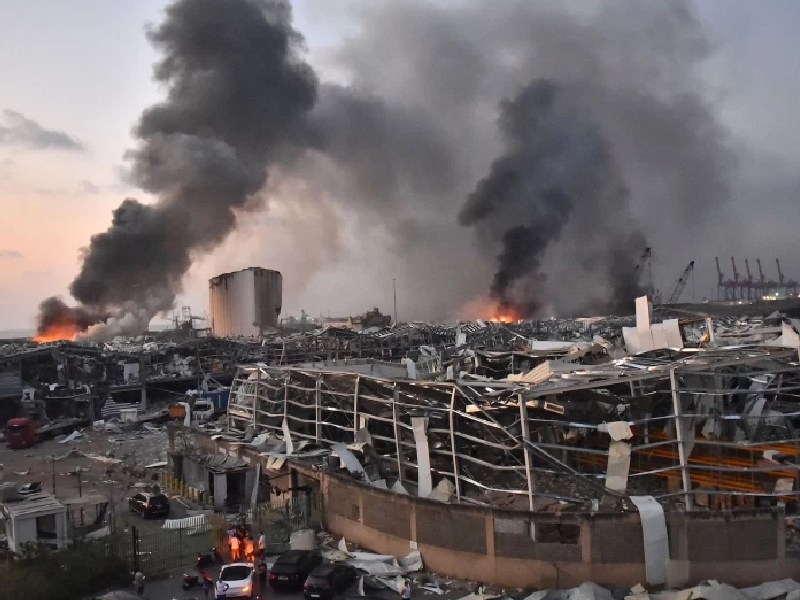Beirut blast: Former Energy official in AP stresses need to tighten ammonium nitrate import, storage
By Newsmeter Network Published on 6 Aug 2020 8:21 AM GMT
Visakhapatnam: The massive blast caused due to ammonium nitrate at port warehouses in Beirut has raised doubts over imports and storage of the explosive in Vizag too.
The blast in Beirut killed 135 people and injured 4,000 more.
Former secretary (Energy), E.A.S. Sarma wrote a letter to Union Home Secretary A.K. Bhalla seeking the need to tighten the rules and procedures relating to import, storage and transport of ammonium nitrate.
Sarma, in his letter, mentioned that the ghastly explosion that rocked Beirut was related to the tardy investigation carried out by the local authorities on the casual manner in which the chemical had been stored at the port and the possibility of either official negligence or an externally triggered event that snowballed into such a huge explosion.
He suggested again and again that the Home Ministry should direct the states to exercise close surveillance over the import, storage and distribution of ammonium nitrate consignments. The Ammonium Nitrate Rules, 2012, have stipulated rigorous norms for storing the chemicals and it requires the local authorities to conduct periodical and surprise inspections to detect lapses that could lead to major accidents or the misuse of the chemical.
Sarma mentioned that to the best of his knowledge, the monitoring part of it has remained slack. He has been suggesting that the trucks carrying the chemical should be fitted with GPS logging devices so that their movement could be tracked closely. This has not been implemented yet.
In Visakhapatnam and elsewhere, it was reported in the past that truckloads of the chemicals had disappeared. Illegal quarrying is an important source of diversion of the chemical into the wrong hands.
In 2017, India imported 275,822 tonne of ammonium nitrate. The imports continue to be around that level even today.
Visakhapatnam port alone witnessed imports of ammonium nitrate to the tune of 2,60,505 tonne (2018-19).
The Beirut accident involved only 2,750 tonne of ammonium nitrate, whereas in Visakhapatnam alone, at any time, there is a minimum stock of 30,000 tonne.
“There are six warehouses that stock the chemicals and from what one could see from the recent LG Polymers gas leak accident, I doubt whether the local authorities are inspecting these warehouses regularly to ensure strict compliance with the storage rules. I am also not sure whether the concerned private companies have emergency accident plans approved by the authorities under the Ammonium Nitrate Rules and the rules applicable to hazardous substances. In Visakhapatnam, if an accident were to take place, it would impact the HPCL Refinery with dangerous consequences, in addition to impacting the adjacent airport and the nearby thickly populated residential colonies,” Sarma mentioned.
“What applies to Visakhapatnam equally applies to the other ports through which the chemical is imported. In addition, I am not sure whether the domestically produced ammonium nitrate is also being closely monitored.”
Against this background, he suggested the following urgent measures.
· Every truck carrying ammonium nitrate should be fitted with GPS tracking facility.
· Periodical and surprise inspections should be ordered of all warehouses and retail outlets storing ammonium nitrate. Officers who have not complied with the inspection schedules should be called upon to explain the lapse.
· Stock variations of even 1 kg can pose a potential threat to human lives and internal security. The Rules should be tightened to take this into account so that those found non-compliant can be proceeded against.
· End-use of ammonium nitrate should be subject to close scrutiny. Illegal quarrying should be stopped immediately.
The culture of industrial safety in Andhra Pradesh and throughout the country has deteriorated of late. Unless the authorities wake up and take proactive measures, serious accidents will recur, endangering the lives of the people. Misuse of the chemical poses a threat to the national security, he said.
